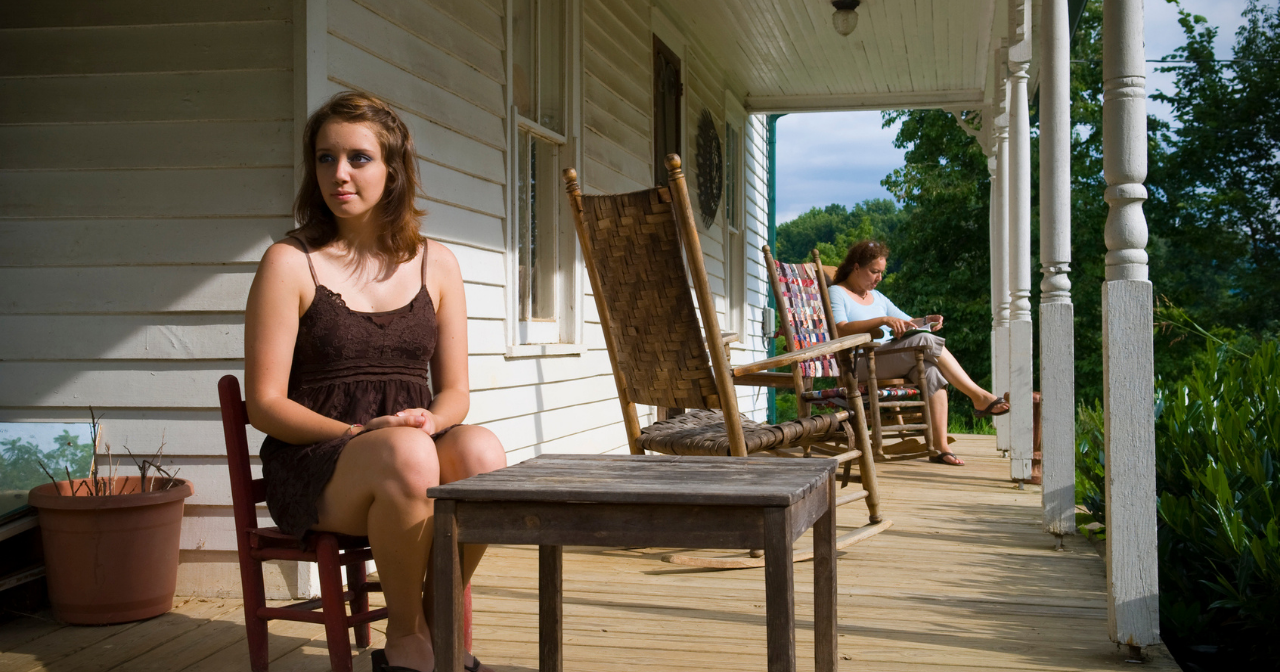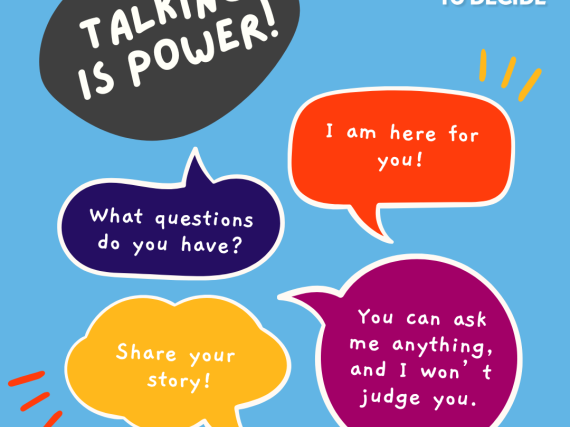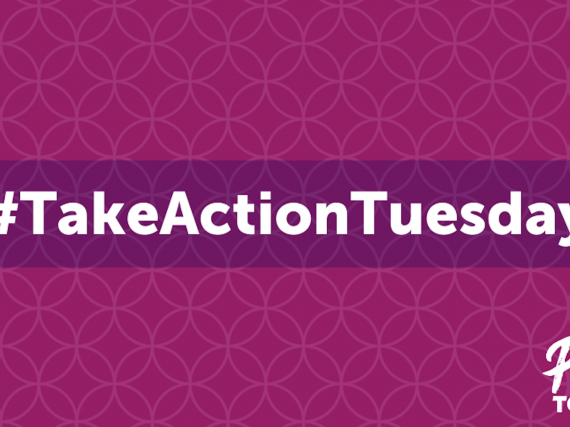Young People in Eastern KY Advocate for Reproductive Health
In Eastern Kentucky, reproductive health care is scarce. Clinics that offer the full range of contraceptives are few and far between. Young people in Eastern KY face numerous barriers to reproductive health care including access to transportation to obtain birth control, shame and stigma often continued in school sex ed classes, and limited awareness of all the methods of contraception. All Access EKY is here to help the young people of Appalachia!
All Access EKY is a collaboration between Appalshop, Kentucky Health Justice Network, and Power to Decide, dedicated to improving access to the full range of contraceptive methods across 10 Eastern Kentucky counties: Floyd, Harlan, Knott, Lee, Leslie, Letcher, Owsley, Perry, Pike, and Wolfe counties. Right now, only 36% of public clinics in these 10 counties offer access to the full range of birth control methods. Studies have shown that when young people have access to complete and accurate information about birth control and reproductive health, as well as the opportunity to make decisions about their future, reductions in unplanned pregnancy are sure to follow.
One key piece of AAEKY is the Ambassador Program. The AAEKY Ambassador Program builds the capacity of young people from Eastern Kentucky to advocate for increased contraceptive access. We’re excited to be part of the 2020 Ambassadorship! Keep reading to learn more about why we’re passionate about reproductive health care and excited to improve access to and awareness of contraceptive methods in Eastern KY.
Kayla Lowe
In middle school, I was diagnosed with PCOS and prescribed birth control. My doctor never explained to me why I was being prescribed birth control. Due to the lack of information, I thought that birth control was only used to prevent pregnancy. That’s what we were told in my school sex ed class. However, I later found out that PCOS is very common and birth control can be used to manage PCOS symptoms. In addition to preventing pregnancy, birth control can help regulate PCOS symptoms like irregular periods, excess hair growth, acne, and preventing cysts on the ovaries. When I was first diagnosed with PCOS, I felt like I was alone and had nobody to talk to. I was embarrassed to discuss my condition with my friends and family. Since middle school, I have learned that reproductive and sexual health are a natural part of life and should not be shamed or stigmatized. I am now a Health Promotion Specialist at the Kentucky River District Health Department and an ambassador for All Access EKY. I am passionate about educating young people across Eastern Kentucky on how they can access the resources and contraceptives they need. Read more about my PCOS story. To learn about the current state of STI education in Eastern KY and how I am advocating for comprehensive, inclusive, and non-judgmental sex education in all schools, read my full blog post.
Winter Wilson
I have lived my entire life in Appalachia. Appalachia is full of culture, beautiful landscapes, and generations of stories. However, Appalachia is very set in its old ways, which isn't always a great thing for folks who reside here. Growing up, I always felt very out of place. I noticed everyone else was happy being called their name, unbothered. However, I never was. I always hated my name and even more so when I was called 'she' in class. This only got worse in seventh grade when we started sex education. After hearing the instructor talk only about heterosexual sex and explain that biology is all that matters, I left feeling like I needed a shower and time to think. For many years, I carried with me the fear of sex, fear of being a disappointment, and fear of being wrong for the way I identified. The year I graduated, I attended a sex ed workshop where the instructors actually talked about LGBTQ bodies and sex in a way that made me feel empowered rather than afraid. I left that workshop angry that it took me 18 years to receive the sex education I needed and deserved. I knew this was a problem that I wanted to help solve. I became a peer educator through Sexy Sex Ed and an Ambassador with All Access EKY. Being queer in Appalachia means a lot of things; it means having politics thrown into your identity and getting denied jobs, but it also means having pride. Appalachia is changing, and it’s changing for the better. To learn more about what it means to be queer in Appalachia, read my full post “The Story of the Mountains - Being Queer in Appalachia.” Read more about my experience with school sex ed.
Ashley Vanover
I have been part of the All Access EKY project for two years now and have learned so much about the importance of reproductive and sexual health. When I was diagnosed with scoliosis at ten years old, I never realized how an orthopedic condition like scoliosis would affect my reproductive health. For people who menstruate, starting your menstrual cycle means your growth plates are beginning to close. This means that the progression of spinal curvature also slows down. So, while most girls my age were dreading starting their period, I was ready for mine to start so I didn't have to worry about my scoliosis progressing further. Scoliosis can also cause painful and irregular periods and impact pregnancy and childbearing. My scoliosis diagnosis has affected my periods, the way I see my body, my mental health, and my ability to have children. I am working with All Access to educate other young people about how reproductive health is linked to a person’s health and overall wellbeing. If you are interested in hearing the rest of my story check out my full blog post.
Through the Ambassador training program, All Access has taught us the importance of sexual and reproductive health education and resources. We’re excited to continue the work of All Access by creating resources and materials to educate other young people about birth control, sexuality, gender, sexually transmitted infections, and so many other important issues around reproductive health. We hope that our work with All Access will break down barriers and help all people in Eastern Kentucky access the full range of contraceptives.



